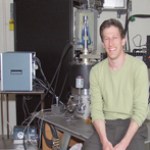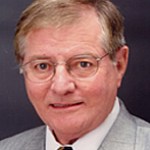Education
I find reading economist Brad DeLong interesting since, even though I don't always agree with him on economics, he approaches his subject with the humility that scientific disciplines brutally instill in their faithful practitioners. This was an interesting notion regarding the future of economics education:
It is the scale of the catastrophe that astonishes me. But what astonishes me even more is the apparent failure of academic economics to take steps to prepare itself for the future. "We need to change our hiring patterns," I expected to hear economics departments around the world say in…
In keeping with this week's unofficial theme of wibbling about academia, there's an article at The Nation about the evils of graduate school that's prompted some discussion. Sean says more or less what I would, though maybe a little more nicely than I would.
I wouldn't bother to comment further, except this spurred Sean to solicit career advice for scientists looking to leave the academic track. Which reminded me that a couple of years ago, I did a bloggy Project for Non-Academic Science (name chosen to have the same acronym as a prestigious journal, because it amused me to do so), where I…
As I noted the other day, we're entering graduation season, one of the two month-long periods (the other being "back to school" time in August/September) when everybody pretends to care deeply about education. Accordingly, the people at the Pew Research Center have released a new report on the opinions of the general public and college presidents about various topics related to higher education. The totally neutral post title is copied from their report.
So, what do they find about general public attitudes? The usual confused muddle:
Cost and Value. A majority of Americans (57%) say the…
So, here's the story. A week or so ago, McMaster University Librarian Jeff Trzeciak gave an invited presentation at Penn State, tasked by the organizers to be controversial.
To say the least, he succeeded. Perhaps the most controversial idea in the presentation was that he would basically no longer hire librarians for his organization, only subject PhDs and IT specialists.
As you can imagine, the library blogosphere and Friendfeedosphere has had a field day with this one.
You can see the slide in question here and get a bit of a background on the situation of librarians at McMaster here.…
Scientists Take Darwin on the Road | Miller-McCune:
"I want to send our scientists to rural schools and communities around the U.S. to talk about evolution for Darwin Day 2011." Jory Weintraub's words hung undigested in the silent air of the management meeting at our North Carolina center last July.
"You want to send our scientists where?" I jested. "On purpose?"
So begins Craig McClain's account of the Darwin Road Show, a project he and his colleagues at the National Evolutionary Synthesis Center undertook last February. McClain, who also blogs at Deep Sea News, describes the enthusiasm the…
In Ophelia Benson's writeup of the Ron Lindsay/Chris Mooney discussion, there's a passage about the Templeton Foundation that jumps out as deeply problematic:
Then they talked about the Templeton Foundation, and Mooney's "fellowship," and the fact that it was controversial. Would you accept a fellowship from the Discovery Institute? Lindsay asked. No. Liberty University? Probably not. But they interfere with science, and Templeton doesn't. Templeton, he said, "are generating a dialogue about the relationship between science and religion." He thinks that's a good thing.
I don't.
On its own,…
For many years, the public health and environmental communities have been calling for reform of the 1976 Toxic Substances Control Act (TSCA), which governs the use of chemicals in US commerce. Instead of requiring companies to demonstrate the safety of chemicals they intend to use or produce, TSCA puts the burden on EPA to request this data and justify their request based on anticipated hazards or substantial human exposures. EPA can only ban or restrict a chemical if it presents "an unreasonable risk of injury to health or the environment." Of the tens of thousands of chemicals now in use in…
Published Science Journal Authors at Eight Years of Age? It Happened in the Blackawton Bees Project!
What would you say if a group of primary school children achieved the unprecedented task of having their school research project accepted for publication in an internationally recognized peer-reviewed science journal?
"Unbelievable," you would probably retort. But that's what happened when a cadre of 25 eight to ten year-old British students participated in an innovative hands-on undertaking in science education headed by Nifty Fifty Speaker Beau Lotto, founder and director of Lottolab, a cutting-edge science laboratory and art studio based at University College London's Institute of…
Meet physicist Andrew Zwicker who is working to raise the status of plasmas in science education. A plasma physicist by training, Andrew is Head of Science Education at Princeton University's Plasma Physics Laboratory (PPPL) where he spends much of his time introducing high school students, undergraduates and K-12 teachers to the glowing, ionized gases that make up plasmas, and to the important role plasmas play in science.
"Plasmas are hot gases containing a significant number of electrically charged particles, and are common in nature," says Andrew, "as exemplified by lightning, the solar…
When Alan McCormack began his career in education several decades ago as a seventh-grade science teacher in Poughkeepsie, N.Y., he tried everything he could to enhance students' interest in the concepts of science.
"I first thought I could be successful automatically just by following techniques used by my college science professors -- lecturing and writing concepts on the blackboard - but that wasn't very engaging for seventh graders," laughs Alan, who serves as professor of Science Education at San Diego State University in San Diego, CA, and as president of the National Science Teachers…
Chad Orzel says Support the National Center for Science Education:
I try not to do any shilling for political groups on the blog, but I'll make an exception for the National Center for Science Education. Why? Three reasons:
1) They do good and important, if not always glamorous work, supporting the teaching of evolution in public schools, both in the classroom and in the courts.
2) Josh Rosenau has a really good blog, one of the best on science-and-politics issues, and his day job is with NCSE.
3) Jerry Coyne is a jackass, whose latest bit of jackassery involves sending an open letter to NCSE…
Noahpinion recognizes a problem that probably familiar to readers with kids in high school--the high cost of college:
While college enrollment rates are up a little over 50% since 1980, the price of college is up by over 1000%.
What this points to is a supply shortage...
More people want to go to college (probably because of the higher college wage premium), but the supply of high-quality colleges simply isn't that big. People are flocking to for-profit colleges because there just isn't room at public ones. And since there are good theoretical as well as empirical reasons to believe that for-…
Four years ago, I wrote a post that I called Gotta have more woo in my medical school! In it, I discussed how UCSF had put out a woo-ful, non-science-based booklet about "complementary and alternative medicine" (CAM), full of references to qi, acupuncture, and all manner of woo. Since then I've been sounding the alarm bells about the creeping infiltration of pseudoscience into medical school, even so much that it's becoming part of the mandatory medical school curriculum. Now, four years later, I see that the creeping infiltration has ceased to creep. Rather, it's turned into a torrent of woo…
As many of you probably know, I'm proud to call Dr. Harriet Hall (a.k.a. the SkepDoc) my friend, and, I daresay, so is my wife. We've both hung out with her at the last two TAMs, and we've hit it off pretty well. I also admire her history of standing up for science, reason, and science-based medicine, something she's been doing longer than I have. I can only hope that one day I will reach her level of respect within the skeptical movement. Unfortunately, that will probably never happen until I cease being a Plexiglass box of multicolored blinking lights, but such is the price of pseudonymity…
Academia in the age of digital reproducibility
Gender Gaps (in academic librarianship)
Libraries' Digital Direction
The Physical Law of Extremes - The Digital Law of the Middle
Data on demand
"Selfless Audacity" Means Creating a Sustainable Not-a-Business Model
Canadians are also hostile to paywalls, survey finds
Mathematics journals: what is valued and what may change: Report of the workshop held at MSRI, Berkeley, California on February 14 - 16 2011
How To Get Tenure at a Major Research University
Social Web or Tempo Web?
Twitter advice for profs: keep it personal
The Natural End of…
Thursday's post about the troubles of biomedical scientists drew a response from Mad Mike saying that, no, biomedical science Ph.D.'s really don't have any career options outside of academia, and pointing to Jessica Palmer's post on the same subject for corroboration. Jessica writes:
This is something I've tried to explain many times to nonscientists: most of the esoteric techniques I mastered during my thesis aren't useful outside a Drosophila lab. They're not transferable to any other field of biology, let alone any other scientific or nonscientific profession. Those skills I picked up on…
This series of four posts by William M. Briggs is pretty interesting stuff.
The kind of thing where I'm torn: is it the most brilliant and perceptive thing I've ever read about higher education or is it a series of slightly early April 1st posts?
Dear Internet, I really need all you people out there to help me figure this one out. Which way does it go.
And by the way, you really have to read all four posts to get the complete message. The comment streams are interesting too.
University Professors Teach Too Much: Part I
Here is what everybody knows: the best researchers are often not the…
A university is a self-perpetuating oligarchy.
A university chooses its own members, restricts membership, and governs from self-selected internal member promotion.
QED
Ok, so this a somewhat platonic abstraction of a private university, and the selection is from the meta-pool of members of the ensemble of universities, that are suitably like the particular university.
But, a self-perpetuating oligarchy it is.
Public universities, well, it gets complicated - they may be totally under external control or under nominal external control or have some open feedback loops to the external world…
I've made no secret of my disdain for self-proclaimed "animal rights" activists, the ones who are more than willing to terrorize scientists doing research to understand disease better and thereby develop better treatments and even cures. None of this means that I am some sort of "animal abuser" (to steal the animal rights jargon) or that I'm cruel and advocate "torturing" animals. There is a difference between animal rights and animal welfare; animal rights activists in essence equate a mouse with a rat with a dog with a pig with a human being. In any case, I've reported how animal rights…
A rather radical proposal from Texas came across my desk recently, courtesy of the Texas Exes...
A Modest Proposal for Texas Higher Ed:
"... The UT System Board of Regents ... has hired consultants who have publicly stated the fundamental view that academic research is not valuable and that tenured faculty could be replaced by lower-cost lecturers. These consultants propose a formula that excludes research in valuing faculty. They only want to look at any immediate financial value of research that can be proven on a current basis.
...
these same consultants also believe that tenured faculty…


